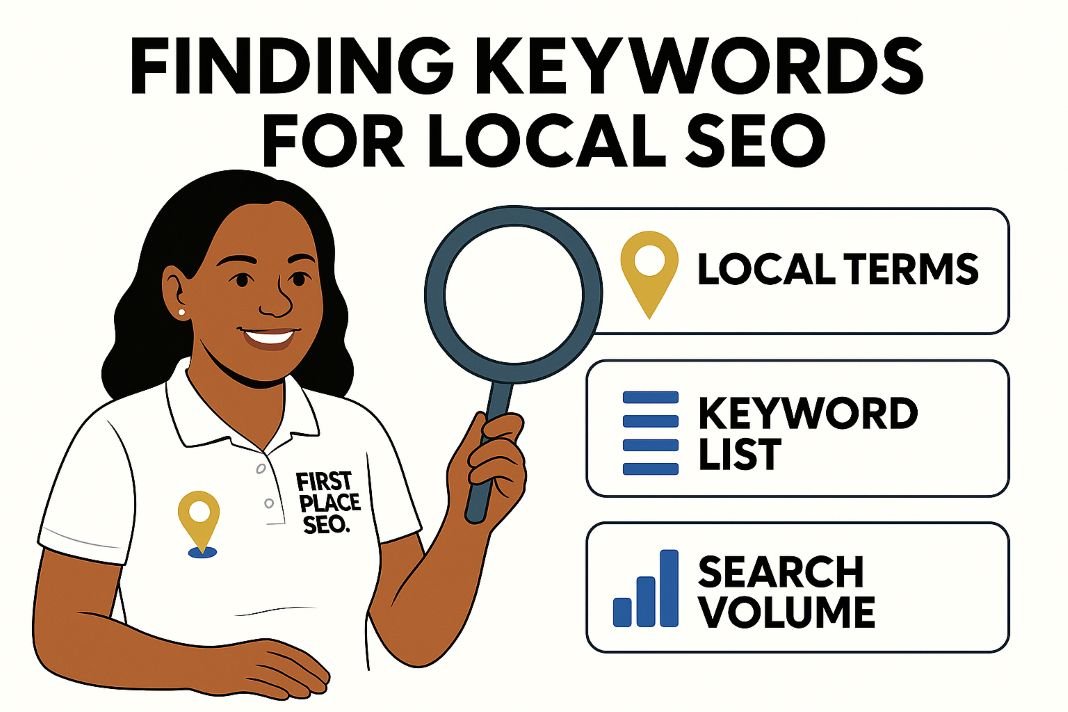How do you find the right keywords for local SEO in the UK?
Finding the right keywords for local SEO in the UK starts with understanding your services and how potential clients search for them in specific locations. Combine what you offer with relevant geographic terms like city names, boroughs, postcodes, and recognisable landmarks. Tools like Google Keyword Planner, Semrush, and AnswerSocrates help uncover exactly what people are typing into search when looking for local solutions. Reviewing competitors, focusing on long-tail terms, and refining your list regularly ensures your keywords stay aligned with how local audiences actually search.
Here's What We Have Covered In This Article
Why choosing local keywords matters for UK businesses
Connecting with real searches
If someone types in “SEO consultant in Central London” or “local SEO agency near W1”, they are usually ready to speak to someone or make an enquiry. Using these specific local terms in your content helps your business appear in front of the right people at the right time.
Showing up in local search results
The Google local pack—those map listings that appear for many location-based searches—is highly visible. Including location-specific keywords on your website improves your chances of showing up there, which often leads to more website visits and calls.
Being relevant to your audience
Local SEO works best when your site content clearly reflects the places and services your business covers. Including boroughs, districts, or nearby landmarks lets Google know exactly who and where you serve, which improves your relevance for local queries.
Pro Tip :Use UTM links in your Google Business Profile website URL to accurately measure traffic and conversions coming from your profile.
Need Help with Local SEO?
Get expert support to optimise your Google Business Profile and local visibility.
Finding and choosing the best local keywords
Start with your services and where you deliver them
List your core offerings
Think about what you help clients with. For example:
-
Local SEO consultancy
-
Technical SEO audits
-
Google Business Profile optimisation
-
Content optimisation for location-based searches
Combine with places and postcodes
Next, add relevant UK locations where you work or target. For example:
-
London
-
Boroughs like Hackney, Islington, or Croydon
-
Postcodes like SE1, NW10, or EC2
-
Landmarks or commercial zones like Shoreditch, Canary Wharf, or Clapham Junction
Use the same language your clients do
If your target market says “SEO help in London” or “local SEO services near me”, reflect that in your keyword planning. Natural, everyday phrases help make your content more visible and relatable.
Use keyword tools to get data that supports your choices
Google Keyword Planner
Use this to see average monthly search volumes and competition levels for keywords like “SEO agency London” or “local SEO services UK”. Apply postcode or city filters to focus on local searches.
Semrush and Ahrefs
These are great for competitor research. Use them to find:
-
Which local terms similar agencies rank for
-
Keywords your site already ranks for but could improve
-
New long-tail opportunities like “affordable SEO consultant in Shoreditch”
AnswerSocrates
This tool gives you real questions people ask in your niche. Search something like “SEO help London” and it might show questions like “Who is the best local SEO expert in Camden?” or “What’s included in a local SEO package in the UK?”
Other helpful platforms
-
Moz Keyword Explorer: for long-tail variations and opportunity scores
-
Ubersuggest: to get volume estimates and content suggestions
-
SpyFu: to monitor what keywords other UK SEO agencies target
-
SEO.ai: useful for expanding keyword sets using natural content suggestions
Pro Tip:Build out a service area page strategy by targeting neighbouring locations even if you don’t have a physical address there.
Match keywords with the right content areas
Use keywords naturally across your website
Every keyword should match the intent of the page it’s placed on:
-
Homepage: “SEO agency in London”
-
Service page: “Google Business Profile management UK”
-
Case study: “How we helped a London business grow using local SEO”
-
Blog: “What to include in a local SEO audit checklist”
Reinforce your location cues
Mention your physical location, areas you serve, or boroughs you target. Add local client logos or testimonials when possible. These all support your visibility for local searches.
How often should you review and update your local keyword strategy?
Measure what works
Use platforms like Google Search Console and Semrush to monitor keyword performance. Focus on which pages attract the most traffic, which queries lead users to your site, and how each keyword ranks over time. For instance, if your page offering local SEO audits for small businesses in London gains traction, explore related queries to build supporting content.
Adjust for seasonal and market changes
Search behaviour changes with the seasons and current events. Keywords like “Christmas SEO campaigns for retailers” or “SEO strategy for new financial year” can see sharp increases in demand. Schedule monthly or quarterly reviews of your keyword list to check for volume shifts, new opportunities, or declining relevance.
Update your services and pages accordingly
As your offerings evolve, ensure your keyword list reflects those changes. If you expand into schema markup services or Google Business Profile training, include related terms naturally within your services pages and supporting blog posts. Align each page’s purpose with targeted queries to improve both indexing and user experience.
A clearly structured keyword strategy that evolves with your agency’s growth helps you compete effectively in local search. Using search terms that match what people are actively typing into Google means you show up where it counts. This precision not only boosts visibility but also attracts leads who are actively looking for the services you provide.
The right keyword strategy ensures your agency is found by businesses looking for help with SEO in their specific area. Matching your services to the way people actually search in their part of the UK gives you an advantage in search visibility and client acquisition.



